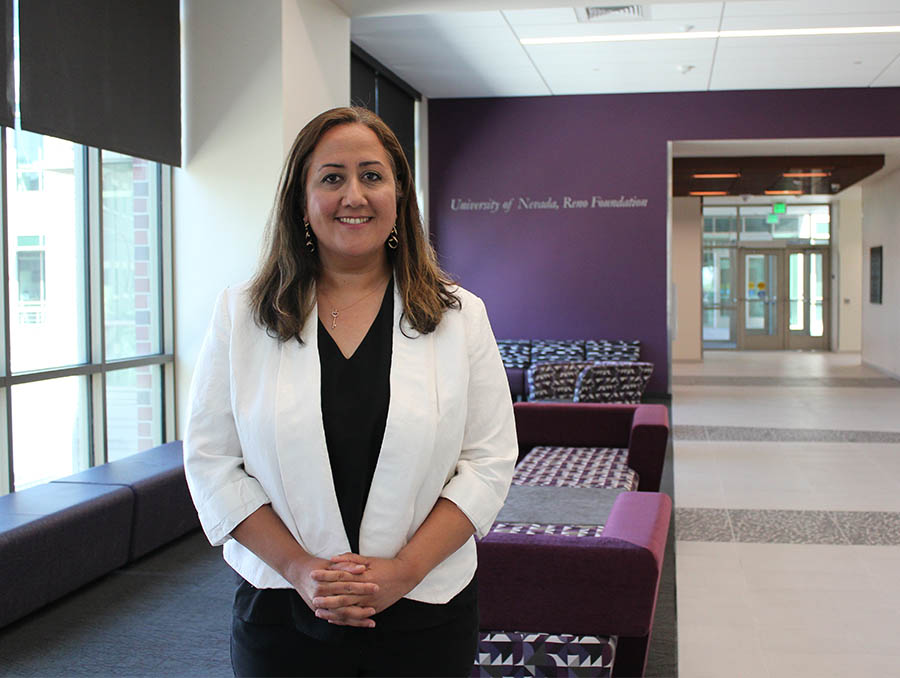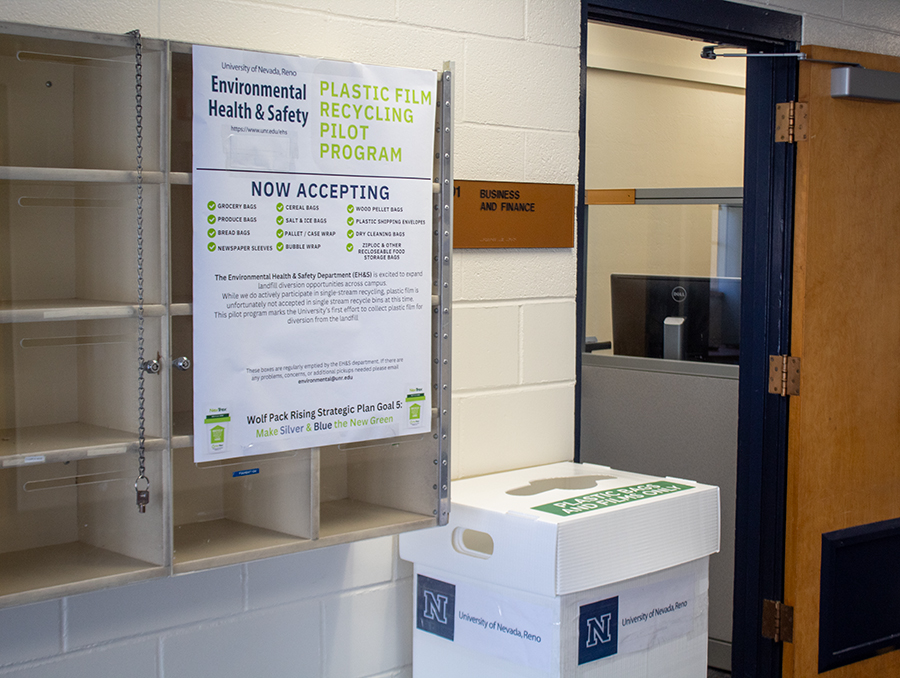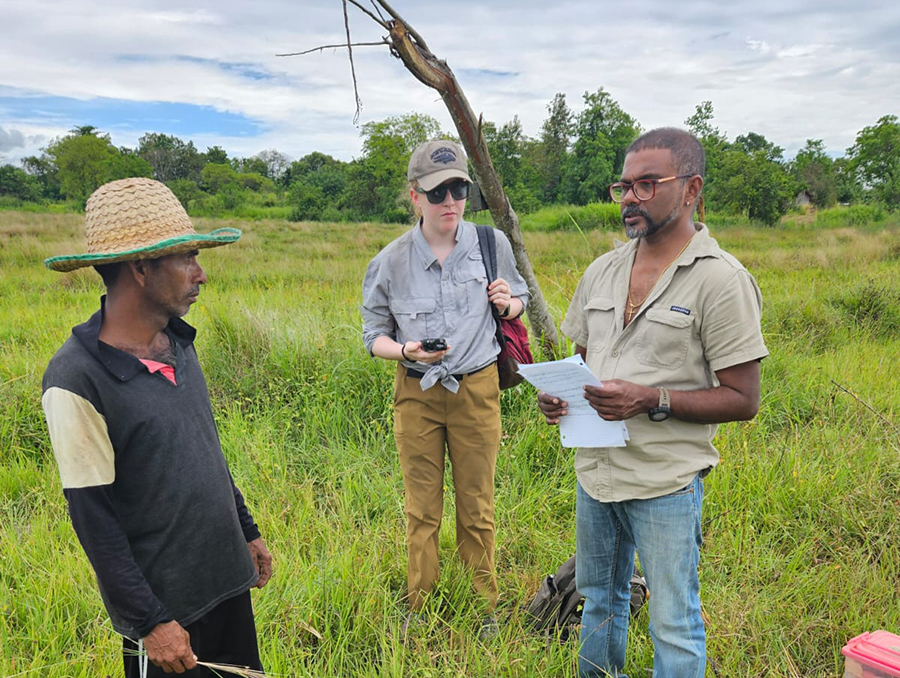Enzymes in laundry detergents, insulin for diabetes, and the antibodies and enzymes used in medicine: all of these exist thanks to protein science and engineering. Protein engineering has transformed everyday life, and scientists are continuing to push the field forward with new breakthroughs.
Chemical & Materials Engineering Associate Professor Maryam Raeeszadeh-Sarmazdeh is working to close some of the knowledge gaps in this area. One of her recently funded research projects seeks to better understand how certain types of proteins called Tissue Inhibitors of Metalloproteinases (TIMPs) control a system in our bodies called the extracellular matrix (ECM).
The ECM, Raeeszadeh-Sarmazdeh explained, is a complex biological system, a web of proteins and other molecules that surrounds cells, giving them structure, support and protection. Understanding and controlling ECM has a great importance in many different life science and bioengineering fields.
“By carefully tuning the ECM, for example, through engineering natural regulators called TIMPs, we may be able to control this complex biological network and cell signaling networks,” Raeeszadeh-Sarmazdeh said.
Her research project, "Engineering and design of multifunctional protein inhibitors to understand and control complex biological systems," is funded with a five-year, $621,000 National Science Foundation (NSF) CAREER award. The NSF’s Faculty Early Career Development (CAREER) Program is one of the agency’s most prestigious awards to early career faculty.
“Dr. Raeeszadeh-Sarmazdeh’s NSF CAREER award is a major win for the University of Nevada, Reno and for Nevada,” Victor Vasquez, chair of the Chemical & Materials Engineering Department, said.
University leadership echoed that enthusiasm.
“Maryam’s selection for this prestigious NSF CAREER award is a testament to her creativity, commitment and the exceptional promise of her research,” Mridul Gautam, vice president for research and innovation, said. “She exemplifies the kind of early-career faculty who are advancing knowledge in ways that have the potential to significantly impact science and society. We are proud to support her work and look forward to the discoveries ahead.”
Protein design
Raeeszadeh-Sarmazdeh compares biological systems to cities, with roads and traffic lights keeping everything functional.
“Proteins are the key workers in this city: they carry out the jobs and also regulate how other jobs get done,” Raeeszadeh-Sarmazdeh said.
Some of the proteins are multifunctional, meaning they can do more than one job at a time, often influencing multiple systems. TIMPs are multifunctional proteins that regulate the ECM by interaction with several other key proteins, including enzymes that are shaping the ECM.
“Our main goal is to design multifunctional TIMPs capable of precisely targeting ECM proteins,” Raeeszadeh-Sarmazdeh said.
She’ll use several techniques to accomplish this, including directed evolution — making small changes to proteins over and over, and keeping the versions that work best — as well as high-throughput screening, which quickly tests thousands of proteins to see which are most effective. Also in the mix is computational protein design, where computers help predict what new proteins might look like and how they might work.
The resulting engineered TIMPs will be tested to see how they influence the ECM.
“By expanding our understanding of how multifunctional TIMPs control ECM dynamics, this research will address key gaps in protein engineering, contribute to novel design of protein scaffolds, and create valuable tools for studying complex biological systems,” Raeeszadeh-Sarmazdeh said.
Career journey
The daughter of an electrical engineer, Raeeszadeh-Sarmardeh was more interested chemistry and math. In 2008, she earned bachelor’s and master’s degrees in chemical engineering-biotechnology at the Sharif University of Technology in Tehran, Iran, before pursuing a doctorate at the University of Tennessee, Knoxville (UTK). There, protein science and its potential to impact people’s lives captured her attention.
“I want to solve critical problems,” she said. “I want to use the tools from life science and engineering that we have to solve bigger, complex problems that transform daily human lives.”
After completing her Ph.D. in 2014, Raeeszadeh-Sarmardeh did postdoctoral work at the University of Delaware and worked as a senior research fellow at Mayo Clinic. She joined the University of Nevada, Reno in 2019, setting up her own protein engineering lab. She has received multiple grant awards for protein engineering research, but the CAREER award is special. Not only does it recognize her potential as a researcher, but her promise as an educator: CAREER proposals require an education component. In keeping with that mission, Raeeszadeh-Sarmardeh’s CAREER project will include K-12 lessons.
“I love the education part,” she said, adding that she hopes to instill in students the same excitement about protein engineering as she herself feels. “I’m excited to train the next generation of biomolecular engineers.”















